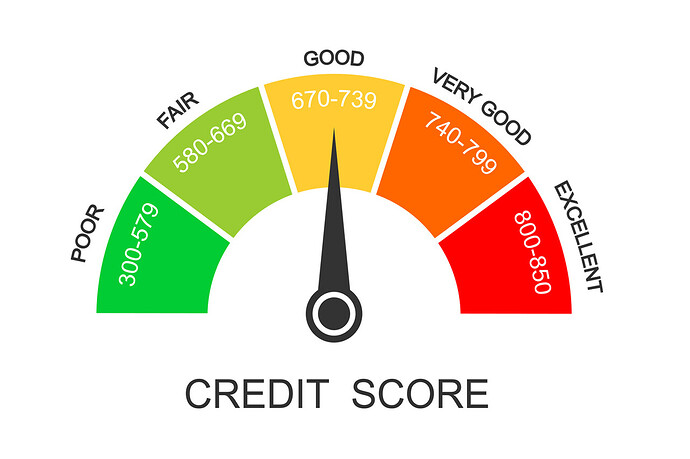Managing personal finances has become a critical skill in today’s world, especially when it comes to securing loans or credit cards. At the center of this financial web lies your CIBIL score, a three-digit number that can either open doors to financial opportunities or slam them shut.

What Is a CIBIL Score?
Imagine your financial history summarized into one number ranging from 300 to 900. That’s your CIBIL score—your creditworthiness distilled into a simple figure. It reflects how well you manage loans, credit cards, and other financial obligations.
Banks and financial institutions use your CIBIL score as a tool to determine whether you’re a reliable borrower or a potential risk. A higher score indicates better financial discipline, increasing your chances of loan approval with favorable terms.
But what happens if your score is low? Let’s explore how this impacts your financial prospects.
Why Is the CIBIL Score Important?
When you apply for a loan or credit card, your CIBIL score is the first thing lenders check. It acts as a trust signal for financial institutions, helping them evaluate your credit behavior.
For instance:
- A high CIBIL score (750–900) shows you’re disciplined, making you a desirable customer for banks.
- A low CIBIL score (below 650) raises red flags, and banks might reject your application or offer loans with higher interest rates.
Your CIBIL score isn’t just a number; it’s a key to unlocking financial freedom.

|
Understanding CIBIL Score Categories
1. NA/NH: The Beginner’s Zone
If you’ve never taken a loan or used a credit card, your score might show up as NA (Not Available) or NH (No History). While this doesn’t harm your financial reputation, you’ll need to build a credit history to gain a proper score.
Example: Imagine a fresh graduate starting their first job—they might not have a CIBIL score yet, as they haven’t used any credit products.
2. 350–549: Needs Improvement
This range indicates poor financial behavior, such as missed payments or over-utilizing your credit limit. Securing a loan with this score is challenging.
Real-Life Scenario: A businessman defaults on loan repayments due to inconsistent cash flow. This drops his score into the “Needs Improvement” range, limiting his access to new loans.
3. 550–649: On the Path to Recovery
A score in this range shows that while you’re trying to improve, your financial discipline still needs work. Loans may be approved, but expect higher interest rates.
Pro Tip: Consistent repayments can help you climb to a better score.
4. 650–749: Satisfactory
This range indicates you’re managing finances responsibly. Most banks will approve your loan application, but terms might not be the most favorable.
5. 750–900: Excellent
A score in this bracket is every borrower’s dream. It represents strong financial discipline, timely repayments, and low credit utilization. Banks offer loans at lower interest rates, making your borrowing experience smooth and rewarding.
How to Improve Your CIBIL Score?
Improving your CIBIL score isn’t an overnight process—it takes time, effort, and discipline. Here’s a step-by-step guide to help you on your journey:
1. Pay Your Bills on Time
Missing even a single payment can harm your CIBIL score. Whether it’s a loan EMI or a credit card bill, ensure you pay the full amount by the due date.
Example: Ramesh, a salaried employee, sets reminders for his EMIs and pays on time every month. Over time, his score improved from 620 to 780.
2. Maintain a Low Credit Utilization Ratio
Avoid maxing out your credit card limit. A healthy practice is to use less than 30% of your total credit limit.
Example: If your credit card has a ₹1,00,000 limit, try to keep your monthly expenses under ₹30,000.
3. Diversify Your Credit Mix
Having a combination of secured loans (like home or auto loans) and unsecured loans (like personal loans or credit cards) demonstrates your ability to handle different types of credit.
4. Monitor Your CIBIL Score Regularly
Checking your CIBIL score at least once a year ensures you’re aware of your financial standing. It also helps you detect and rectify errors, such as incorrect loan closure records.
Tip: You can access one free CIBIL report annually from the official website.
5. Avoid Closing Old Credit Accounts
Older accounts with a good repayment history can boost your score. Closing them might shorten your credit history and negatively impact your score.
How Does a Good CIBIL Score Benefit You?
1. Faster Loan Approvals
With a high score, banks and financial institutions are more likely to approve your loan applications quickly.
2. Lower Interest Rates
Borrowers with excellent CIBIL scores enjoy preferential interest rates, saving significant money in the long run.
Example: Suppose Ravi and Priya apply for personal loans of ₹10,00,000 each. Ravi’s CIBIL score is 780, so he gets an interest rate of 10%, while Priya, with a score of 620, is charged 14%. Over five years, Ravi saves lakhs in interest.
3. Higher Credit Limits
Banks offer higher credit limits to individuals with good scores, giving you more financial flexibility.
4. Better Negotiation Power
With a strong CIBIL score, you can negotiate better loan terms, such as reduced processing fees or extended repayment tenure.
What Happens If Your CIBIL Score Is Low?
A poor CIBIL score can result in several roadblocks:
- Loan Rejection: Banks may deny your loan application outright.
- Higher Costs: You might secure a loan but with higher interest rates and fees.
- Limited Options: You’ll have fewer financial institutions willing to work with you.
The Impact of Real-Life Events on Your CIBIL Score
Let’s consider another example:
Suresh, a self-employed individual, missed three consecutive EMI payments due to a medical emergency. This caused his CIBIL score to drop from 720 to 580. To recover, he consolidated his debt, reduced unnecessary expenses, and ensured timely payments, gradually improving his score.
Prioritize Your CIBIL Score
Your CIBIL score isn’t just a number—it’s a reflection of your financial health and discipline. Maintaining a score of 750 or above is crucial for unlocking better economic opportunities, such as low-interest loans and faster approvals.
Remember: Building and maintaining a strong CIBIL score is a marathon, not a sprint. By following best practices like timely payments, low credit utilization, and regular monitoring, you can secure a financially stable future.
Whether you’re planning to buy a home, start a business, or finance your dream car, your CIBIL score is the key to turning those dreams into reality. Take control of your finances today—your future self will thank you.



